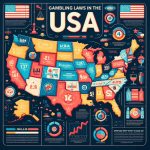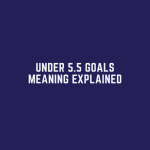Explanation of Odds
Odds are a numerical representation of the likelihood of a particular outcome occurring in a given event. They provide insight into the probability of an event happening, with shorter odds indicating a higher probability and longer odds suggesting a lower probability. For example, if the odds of a horse winning a race are 2:1, this means there is a 1 in 3 chance of the horse winning.
Understanding odds is essential for anyone looking to engage in betting or forecasting outcomes in various fields. Odds can come in different formats such as fractional, decimal, or moneyline, each offering a unique way of interpreting the likelihood of an event. By grasping the concept of odds, individuals can make more informed decisions when placing bets, managing risks, or evaluating the potential outcomes of different scenarios.
Probability and Statistics in Odds Calculation
Odds calculation involves a deep understanding of probability and statistics. Probability is the likelihood of a specific outcome occurring, expressed as a fraction, decimal, or percentage. It is based on analyzing past data, trends, and various influencing factors to predict future results accurately. Statistics play a crucial role in odds calculation by providing a framework for organizing, interpreting, and analyzing data to make informed decisions on setting odds. By utilizing statistical methods, bookmakers can assess the probability of different outcomes and adjust their odds accordingly to ensure a fair and profitable betting market.
In odds calculation, factors such as historical performance, player statistics, injuries, weather conditions, and other relevant variables are carefully considered. These factors help bookmakers evaluate the probability of each outcome and set the odds to reflect the perceived likelihood of events occurring. By incorporating a range of statistical tools and techniques, bookmakers can offer competitive odds that balance risk and reward for both themselves and bettors. Understanding the intricate relationship between probability, statistics, and odds calculation is essential for anyone looking to navigate the world of sports betting effectively.
Factors Considered in Setting Odds
When it comes to setting odds for various betting events, bookmakers take into account a myriad of factors to accurately predict the outcome. One of the primary considerations is the historical performance of the teams or individuals involved. Past performance serves as a crucial indicator of future success and helps bookmakers gauge the likelihood of a particular outcome.
Moreover, current form and injuries play a significant role in determining the odds for a particular event. Bookmakers closely monitor the fitness levels and performance trends of athletes or teams to assess their chances of winning. For instance, an injury to a key player can heavily influence the odds, as it impacts the overall team dynamics and performance.
Understanding Implied Probability
Implied probability is a concept that allows bettors to understand the likelihood of an outcome based on the odds provided by bookmakers. In essence, it represents the probability of an event occurring as indicated by the odds. For example, if a team has odds of 2.00 to win a match, the implied probability of this outcome is 50%.
Calculating implied probability is relatively straightforward. It involves dividing 1 by the decimal odds provided and then multiplying by 100 to convert it into a percentage. By grasping implied probability, bettors can gauge if a bet is worth taking based on their own assessment of the actual probability of an event happening compared to the implied probability suggested by the odds.
Bookmakers and Odds Making
Bookmakers play a pivotal role in the world of sports betting by setting odds that reflect the likelihood of various outcomes. These professionals utilize a combination of statistical analysis, historical data, and expert knowledge to determine the probabilities associated with different events. Their goal is to create odds that not only attract bettors but also balance the books to ensure profitability for the house.
In the process of setting odds, bookmakers consider a multitude of factors such as team form, injuries, home advantage, weather conditions, and historical head-to-head statistics. By weighing these variables and using their expertise, bookmakers aim to establish accurate odds that provide a fair representation of the probabilities involved. This meticulous approach helps create a competitive betting market where bettors have the opportunity to make informed choices based on the odds provided.















